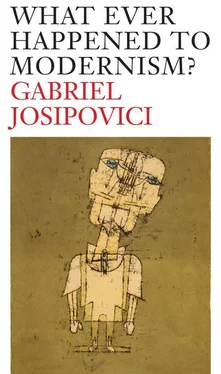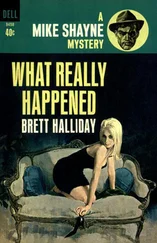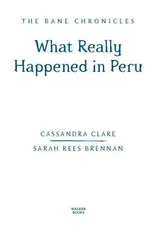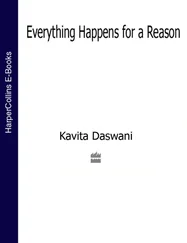Yes, said Forster ruefully, novels tell stories. But, for the writer who feels as Bacon does, there must be ways of fighting this similar to Bacon's. First, as Kierkegaard said, it is necessary to feel that something is lacking and then to feel quite vividly the lack. In his great essay on reading Proust talks with what might seem surprising passion about the tyranny of the imperfect indicative, ‘that cruel tense which portrays life to us as something at once ephemeral and passive, which, in the very act of retracing our actions, reduces them to an illusion, annihilating them in the past without leaving us, unlike the perfect tense, with the consolation of activity’. ‘Even today’, he adds,
I can have been thinking calmly about death for hours; I need only open a volume of Sainte-Beuve's Lundis and alight, for example, on this sentence of Lamartine's (it concerns Mme d'Albany): ‘Nothing about her at that time recalled [ rappelait ] … She was [ c'était ] a small woman … etc.’ to feel myself at once invaded by a profound melancholy.
As so often, Roland Barthes merely develops the insights of the great Modernists, though with characteristic acuity. He discusses tenses in his first major work, Le Degré zéro de l'écriture (1953). It's perfectly possible, he points out, to write novels in the form of letters and to write history through analysis and economic tables, but at a particular moment, in the nineteenth century, both history and the novel chose as their preferred form what he calls the récit . And the keystone of the récit is the passé simple :
Through its passé simple the verb implicitly takes its place in a causal chain, it participates in a group of actions which are of a piece and forward driven, it functions as the algebraic sign of an intention … It supposes a world which is constructed, elaborated, detached, reduced to a few significant lines, not a world which is thrown, displayed, offered [ jeté, étalé, offert ]. Behind the passé simple there always hides a demiurge, god or reciter; the world is not inexplicable when one recites it.. When the historian affirms that the duc de Guise died [ mourut ] on 23 December 1588, when the novelist recounts how the marquise went out [ sortit ] at five, these actions emerge from a past without density; freed of the trembling of existence [ du tremblement de l'existence ], they have the stability and the pattern of an algebra, they are a memory, but a useful memory, whose interest counts for much more than its duration.
…For all the great storytellers of the nineteenth century the world may be filled with pathos, but it is not abandoned, since it is a cluster of coherent relations, since there is no friction between the written elements, since he who recounts has the power to challenge the opacity and the solitude of the existences which make it up, since he can testify with each phrase to the possibility of communication and to a hierarchy of actions.
And he sums up:
The passé simple signifies a creation: that is, it signals it and imposes it. Even engaged in the most sober realism, it reassures, because, thanks to it, the verb expresses an act which is closed, definite, substantive. The récit has a name, it escapes the terror of a speech without limit. Reality grows thinner and becomes familiar.
Barthes' example of the marquise going out at five o'clock is a reference to a famous remark by Valéry, quoted by Breton in The Surrealist Manifesto , that the phrase was one he would always avoid, as it was the type of bad opening of classic nineteenth-century narratives. What Valéry hates about the phrase is its anecdotal character, what Bacon would call ‘the story-telling aspect’. What Bacon and Valéry object to is the arbitrariness implied in the use of the phrase. The marquise went out at five o'clock, but why not at six or seven, and why a marquise and not a duchess? The classic novelist will reply: because in my story it's a marquise and she goes out at five, not six or seven. But there is something a little disingenuous in this. It's a marquise and not a duchess and she goes out at five and not six or seven because he has decided, for the purposes of his narrative, that this is how it will be. But the old question, raised already, we have seen, by Rabelais and Cervantes, still remains: What gives you the authority to decide that it will be this rather than that? No authority, the classic novelist will reply, but simply the requirements of realism, the requirements of my plot. But do these things have to do with anything other than ensuring that your novel is saleable? That of course is a very reasonable requirement, but let us then simply relegate it to the world of consumerism, of fitted kitchens and package holidays, and not pretend that we are dealing with aesthetic or ethical issues.
The problem, as always with the novel, is more complicated than either party quite realises. For when we talk about anecdotes, when we talk about what is arbitrary and what is necessary, we are not just talking about art, we are also talking about life. Kierkegaard and Sartre were right: we cannot hive off these problems as being merely problems of narrative. Narrative is so potent because telling stories is part of what being human is about. But that is all the more reason to be wary about how stories are told.
The way old Freddie told me the story it was as limpid as dammit. And what he thinks — and what I think too — is that it just shows what toys we are in the hands of Fate, if you know what I mean. I mean to say, it's no good worrying and trying to look ahead and plan and scheme and weigh your every action, if you follow me, because you never can tell when doing such-and-such won't make so-and-so happen — while, on the other hand, if you do so-and-so it may just as easily lead to such-and-such.
Life, P.G. Wodehouse's narrator suggests here, is all a matter of chance, or fate: I do so and so and such and such results, but I might well have done something slightly different and then something quite different would have resulted. But if life is like that can fiction afford to be? In fact it can't, or there would be no artefacts but an endless series of disorganised coincidences which would quickly bore the reader; yet it has to pretend it is doing just that if it is to retain the reader's belief that it is ‘true to life’. Most novels are uneasy compromises between these two positions.
As always, what Modernism does is to drive the contradictions out into the open. In Borges' story, ‘Death and the Compass’, the dull police inspector, Treviranus, faced with a number of facts — a dead body in a hotel room, precious stones in the next room — comes up with the obvious explanation:
‘No need to look for a three-legged cat here. We all know that the Tetrarch of Galilee owns the finest sapphires in the world. Someone, intending to steal them, must have broken in here by mistake, Yarmolinsky got up; the robber had to kill him. How does it sound to you?’
‘Possible, but not interesting’, replies the detective hero, Lonnröt.
‘You'll reply that reality hasn't the least obligation to be interesting. I'll answer you that reality may avoid that obligation but that hypotheses may not. In the hypothesis you propose, chance intervenes copiously. Here we have a dead rabbi; I would prefer a purely rabbinical explanation, not the imaginary mischances of an imaginary robber.’
Lonnröt of course is right. He recognises that there is the banal reality of facts and probable causes and there is the aesthetic and existential need for pattern; the effort of the nineteenth-century novelist and historian to imply that the two are one does not hold up. But in Borges' brilliant story Lonnröt's intuition leads to his own demise, for the villain is, in this story, one step ahead of the detective. He has, in fact, produced an ‘interesting’ series of crimes precisely because he knows that Lonnröt has a weakness for the ‘interesting’, for the type of explanation in which chance is most fully eliminated. So, as a result of this, he ends up, like Oedipus, as the victim as well as the solver of the crime. But the ultimate victor is, of course, neither the villain nor the detective, but the story. Borges has succeeded in writing a story that avoids the vagaries of chance, the arbitrariness of Valéry's sentence about the marquise, that is as gripping as any detective story, and yet makes us recognise that it is human agency that is always at work.
Читать дальше












